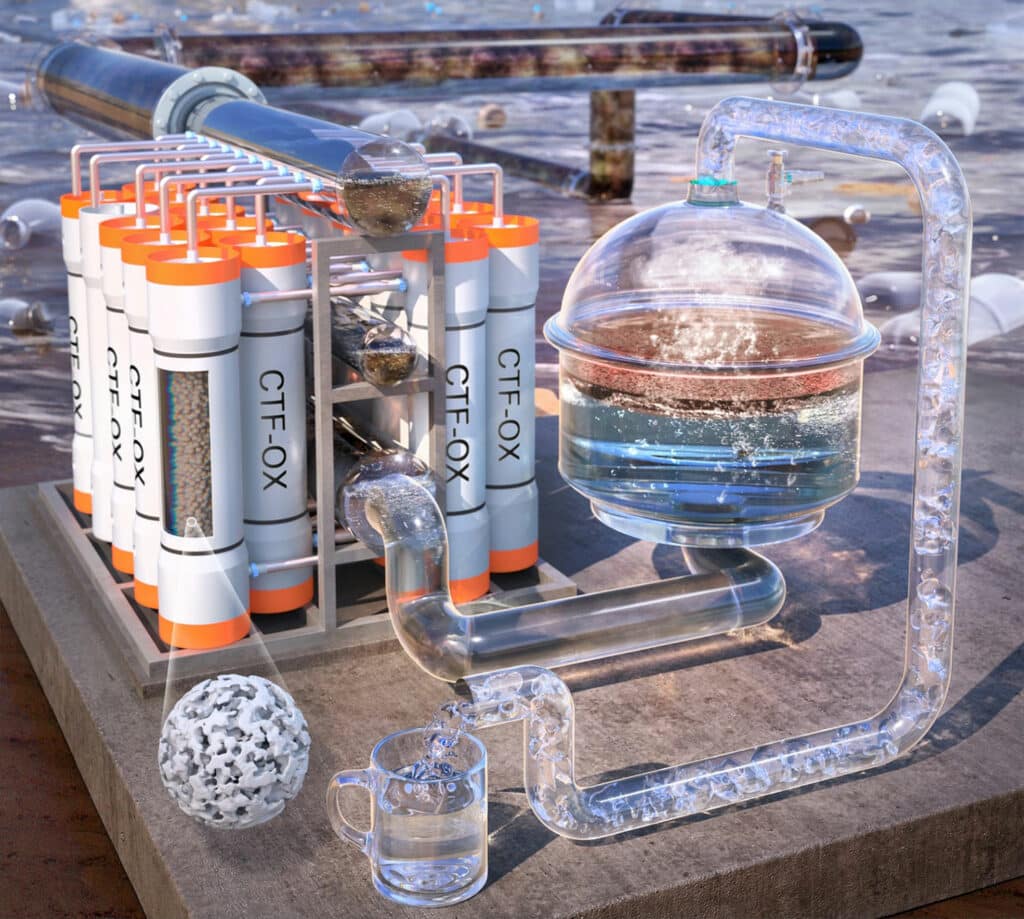The freshwater shortage is becoming one of the most critical global challenges owing to severe water pollution caused by micropollutants and volatile organic compounds (VOCs). However, current water purification technology shows slow adsorption of micropollutants and requires an energy-intensive process of VOCs removal from water.
Now, researchers at Daegu Gyeongbuk Institute of Science and Technology (DGIST) in South Korea have successfully developed an ‘atypical porous polymer material’ that can completely remove phenolic organic contaminants in water at ultra-high speeds. The new porous material can efficiently remove not only microplastics in the water but also very small-sized VOCs based on the photothermal effect.
Researchers succeeded in synthesizing a highly porous polymer with excellent adsorption performance and photothermal properties by reacting with an inexpensive and effective precursor. The team also experimented with an additional oxidation reaction on the polymer, and based on the results, a hydrophilic functional group was introduced to enable fast adsorption of micro-pollutants in the aquatic environment.
Through experiments, it was also confirmed that the polymer developed by the research team does not require high thermal energy for recycling and can be used multiple times without loss of performance. Researchers produced a water treatment membrane capable of evaporating water using solar energy as a driving force through the developed polymer’s ability to absorb light broadly and convert the absorbed light into heat.

As a result, it was confirmed that the water treatment membrane coated with the oxidized polymer could purify phenolic contaminants through sunlight. The resulting water filter has shown rapid removal efficiency of micropollutants – reportedly, over 99.9% of the pollutants were removed within 10 seconds – and can be regenerated several times without performance loss.
Additionally, photothermal composite membrane fabrication using the new material exhibits a high VOC rejection rate (up to 98%) under one sun irradiation. A prototype of a synergistic purification system composed of adsorption and solar-driven membrane can efficiently remove over 99.9% of mixed phenol derivatives.
“The technology we developed here is an unrivaled water purification technology with the world’s highest purification efficiency, removing more than 99.9% of phenolic microplastics and VOC contaminants in water at ultra-high speeds,” said Park Chi-Young, Professor at DGIST Department of Energy Science and Engineering. “We expected that it will be a universal technology with high economic efficiency that can purify contaminated water and supply drinking water even in areas where there is no power supply.”
Journal reference:
- Wansu Cho, Dongjun Lee, Gyeonghyeon Choi, Jihyo Kim, Acquah Ebenezer Kojo, Chiyoung Park. Supramolecular Engineering of Amorphous Porous Polymers for Rapid Adsorption of Micropollutants and Solar-Powered Volatile Organic Compounds Management. Advanced Materials, 2022; DOI: 10.1002/adma.202206982
New water purification tech removes 99.9% of microplastics in 10 seconds
Source: Tambay News

0 Comments